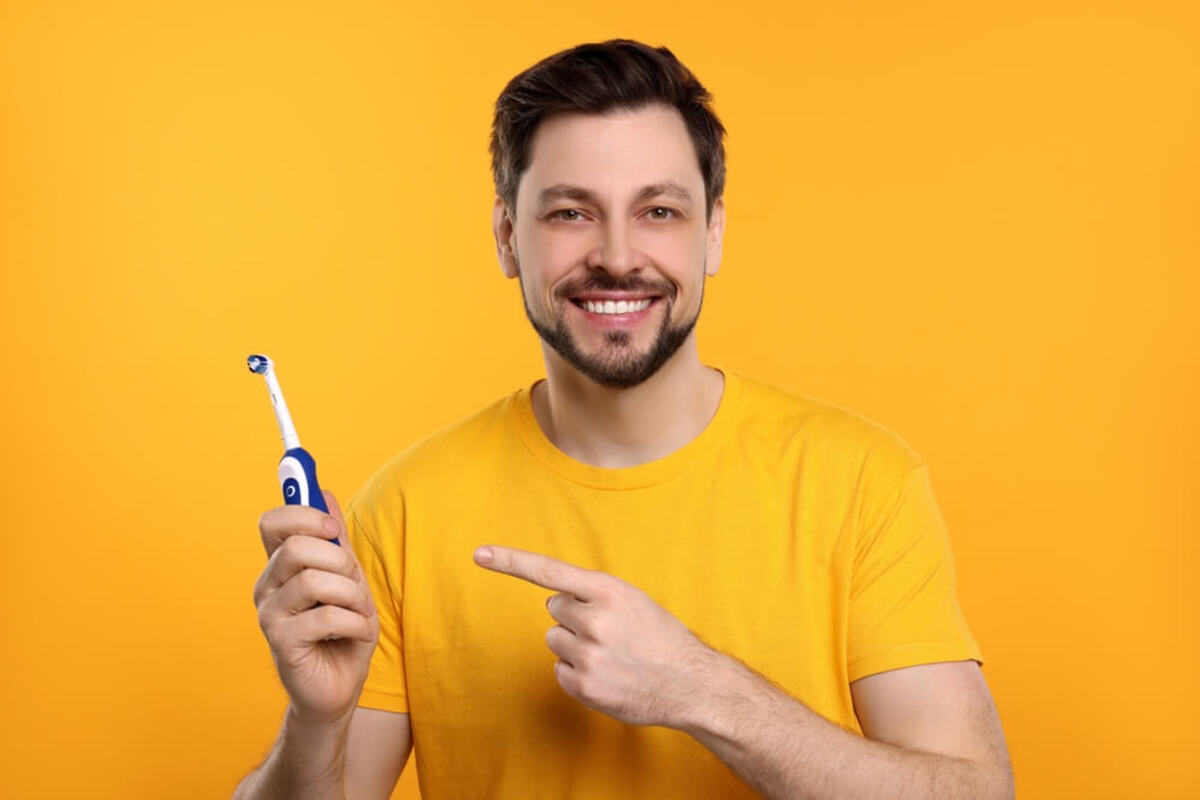When it comes to dental care, one question frequently pops up: “Are electric toothbrushes more effective than their manual counterparts?” In this blog, we will unpack the differences between manual and electric toothbrushes, providing some enlightening perspectives on which might be better for looking after your pearly whites.
Electric vs. Manual Toothbrush: Here’s What You Need to Know
Historically, manual toothbrushes have been the preferred instrument to sustain the health of teeth and gums. They are uncomplicated, efficient and come in various sizes and designs to cater to diverse oral requirements. A standard toothbrush with soft bristles is often advised for its proficiency in cleaning tooth surfaces and reducing the chance of gum recession due to excessive pressure.
In contrast, electric toothbrushes offer an additional degree of convenience and innovation. Equipped with a powered toothbrush head that either spins or oscillates, electric brushes can swiftly cover a broad area of the teeth, making brushing easier for many users.
The Brushing Technique: Manual or Electric Toothbrush
One of the pros of using an electric toothbrush lies in the brushing technique. For an electric toothbrush user, the motorised motion of the brush head does most of the work. They only need to guide the brush along their teeth, which can benefit individuals with limited hand or arm mobility.
However, maintaining oral health with a manual brush is perfectly achievable with the correct brushing technique. The toothbrush should be angled at 45 degrees to the gum line for effective plaque removal, gently brushing each tooth’s chewing surfaces and sides.
Efficacy: Are Electric Toothbrushes Better at Removing Plaque?
An essential question is whether electric toothbrushes outshine their manual counterparts in plaque removal, reducing the chance of conditions like tooth decay and gum disease. Studies indicate that particular models of electric toothbrushes, specifically those that oscillate or are sonic, are marginally more proficient at bacteria elimination and plaque reduction compared to manual ones.
However, remember that the type of toothbrush you choose is just a single piece of the puzzle. Good oral hygiene involves:
- Brushing twice every day with a fluoride toothpaste
- Flossing daily
- Following a healthy diet
- Having regular dental check-ups
Pressure Sensors and Timer: Electric Advantage
Some electric toothbrushes come with built-in features like pressure sensors and timers. Pressure sensors alert you if you’re brushing too hard, which is bad as it leads to gum recession and sensitive teeth. Timers, often set for two minutes, ensure you brush your teeth for the duration advised, promoting a more thorough clean.
Choosing the Right Toothbrush for Your Needs
While studies indicate that electric toothbrushes can be slightly more efficient at removing plaque and reducing gum disease, it’s essential to remember that every mouth is different.
For Kids
Children, for instance, might benefit more from electric toothbrushes. These devices often come with fun features such as colourful designs, lights, and music that can make brushing more entertaining, thereby encouraging good oral hygiene habits from a young age. The automated movement of electric brushes can also make it easier for children to clean all areas of their mouths effectively, especially if they still need to develop their motor skills fully.
For Those With Braces
Cleaning around the brackets and wires is generally challenging if you wear braces. Some may find an electric toothbrush simplifies this process. Many electric toothbrush brands offer special brush heads designed to clean around orthodontic appliances, which could make maintaining oral hygiene with braces a less daunting task.
Sustainability: Manual or Electric?
 In today’s environmentally-conscious world, it’s worth considering the sustainability of your toothbrush choice. Manual toothbrushes generate less waste since you only discard the whole unit, typically made of plastic.
In today’s environmentally-conscious world, it’s worth considering the sustainability of your toothbrush choice. Manual toothbrushes generate less waste since you only discard the whole unit, typically made of plastic.
Conversely, you only need to replace the brush head with electric toothbrushes. Still, the device itself can impact the environment more profoundly due to its electronic components and the energy required to charge it.
However, many companies now offer recyclable or biodegradable options for manual and electric toothbrushes. If sustainability is important to you, these could be options worth exploring.
The Financial Aspect
The cost can be another determining factor in the manual vs. electric debate. Manual toothbrushes are typically much cheaper upfront, and many dentists provide them free of charge during check-ups.
Electric toothbrushes, on the other hand, come with a higher initial cost, and replacing brush heads can also add up over time. However, some might argue that electric toothbrushes’ potential oral health benefits and convenience justify the extra cost.
Electric Toothbrush Care and Maintenance
While electric toothbrushes may offer an edge in plaque removal, they require more care and maintenance than manual ones. For instance, you’ll need to recharge or replace batteries regularly. It’s crucial to remember to clean the parts of the toothbrush that can’t be removed, as these can build up toothpaste residue over time.
Additionally, the components of an electric toothbrush that move can gradually wear down and need to be replaced, adding an extra element of cost and effort. Conversely, looking after a manual toothbrush is a breeze — all you need to do is give it a rinse after brushing and replace it every three to four months. If you notice the bristles fraying, it’s a good idea to get a new one even sooner.
Innovation and Future Trends
As technology continues advancing, expect to see even more exciting advancements in the field of electric toothbrushes. Future designs may incorporate elements such as AI-powered brushing analysis, biofeedback features, or even a more personalised brushing experience through customisable brush heads and settings. As these developments continue, the question of “Do electric toothbrushes clean better” will likely evolve, providing even more compelling reasons to consider making the switch from manual brushing.
Final Thoughts: Personal Preference and Individual Needs
 Whether manual or electric toothbrushes clean better may depend on the user’s preference and individual oral health needs. Some people prefer the simplicity and control of manual toothbrushes, while others might find electric toothbrushes more comfortable and efficient.
Whether manual or electric toothbrushes clean better may depend on the user’s preference and individual oral health needs. Some people prefer the simplicity and control of manual toothbrushes, while others might find electric toothbrushes more comfortable and efficient.
If you have oral health concerns or are unsure about your brushing technique, consulting with a dental professional might be beneficial. They can provide personalised advice and demonstrations to help you maintain your oral health.
Time for a Dental Check-Up?
The team at Beyond Infinity Dental (Denfinity) is here to help you optimise your oral hygiene routine. Our Electric Toothbrush + Electric Waterflosser can ensure your teeth stay in top-notch condition. Ready for a check-up or have a query about your oral health? Contact us today at (02) 8806 3799 to book your consultation!
References:
https://www.researchgate.net/publication/51175920_Different_powered_toothbrushes_for_plaque_control_and_gingival_health
https://www.ncbi.nlm.nih.gov/pmc/articles/PMC7133541/#:~:text=The%20evidence%20produced%20shows%20benefits,after%20three%20months%20of%20use.
https://www.dentalhealth.org/news/electric-toothbrushes-win-the-head-to-head-against-manual-in-record-breaking-new-study









